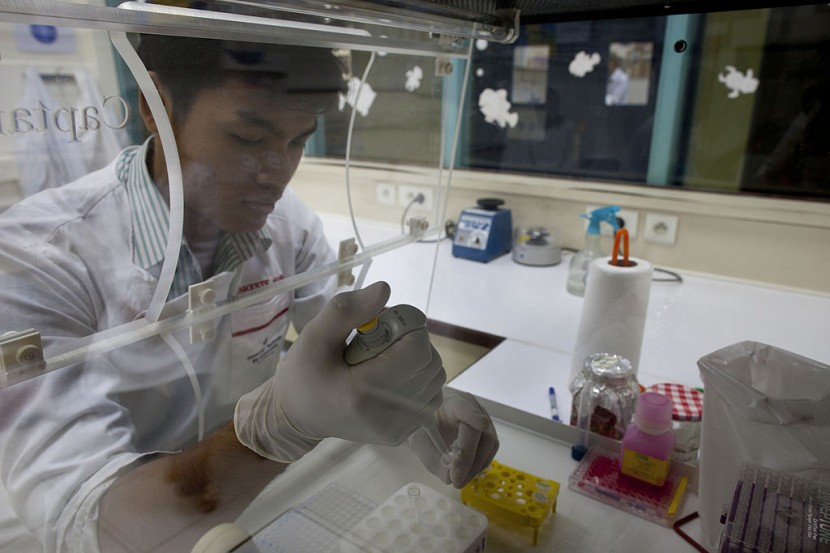
Using an antiseptic throat spray and an oral medication used to treat malaria and arthritis effectively prevent the transmission of COVID-19, study claims. More than 3,000 migrant workers from India, Bangladesh, China, and Myanmar lived in Tuas South dormitory during the six-week survey, which researchers led from the National University Hospital (NUH) in Singapore, according to Channel News Asia.
Just 46% of people who used throat spray three times a day contracted the infection, based on the findings. This compares to 49% for those taking hydroxychloroquine and 70% for those taking vitamin C.
Malaria drug found to be effective in preventing COVID-19
Voluntarily, 3,037 asymptomatic stable men between the ages of 21 and 60 took part in the study. Participants were ruled out if they had any signs of respiratory disease a month prior to the start of the study, such as fever, cough, or lack of smell. Many that had previously been infected with COVID-19 were also excluded.
Does COVID-19 Vaccine Change Menstrual Cycle? Here Are What To Know
Lead author Raymond Seet, Associate Professor at the NUH, said enrollment began in May of last year, with a "slow but steady rise in COVID-19 numbers" at the dormitory. It was made known to tenants of dormitories in India, Bangladesh, China, and Myanmar.
A six-week regimen was randomly allocated to forty clusters, each identified as individual floors of the dormitory over five blocks. Two groups were given the two medications, and a third group was assigned ivermectin, a parasitic disease treatment medication.
Another community was offered a zinc and vitamin C combination. Instead of a placebo, the test group received vitamin C. Three times a day; the povidone-iodine throat spray was needed.
Social Distancing At 6 or 60 Feet To Prevent COVID-19 Has No Difference, Study Claims
Antiseptic throat spray, malaria drug's efficacy in preventing COVID-19
The antiseptic throat spray and malaria drug were selected because they are readily available and they secure the throat, which is the virus's "main entry point." According to the paper, the results were published in the International Journal of Infectious Diseases.
"We concluded that oral hydroxychloroquine was associated with a statistically significant reduction in infection by an absolute risk of reduction of 21%. Meanwhile, povidone-iodine throat spray was associated with a statistically significant reduction in infection by an absolute risk of reduction of 24%," Dr. Seet was quoted as saying. However, the said throat spray and malaria drugs are not intended to be used for COVID-19 protection in the general population if it is a lower-risk setting, as per AhmedBadMirror.
The NUH's Associate Professor Mikael Hartman was quoted as saying, "This is a very straightforward intervention with practically no side effects where we might potentially slash the transmission speeds in a serious way. This is the first research to show that prophylactic or preventive therapy with oral hydroxychloroquine or povidone-iodine throat spray reduces SARS-CoV-2 infection in quarantined individuals living in a closed and high exposure setting," Seet said.
The research procedure had been clarified by a translator, who emphasized the voluntary nature of attendance. Three times a day, the povidone-iodine throat spray was needed. More than half of the participants tested positive for COVID-19 after six weeks. According to the researchers, the antiseptic throat spray and malaria medication should be used in conjunction with other prevention measures in high-risk areas, MINT reported.
Countries Help India Amid Devastating COVID-19 Disaster, Here's How You Can Help Too








